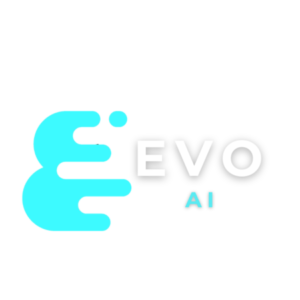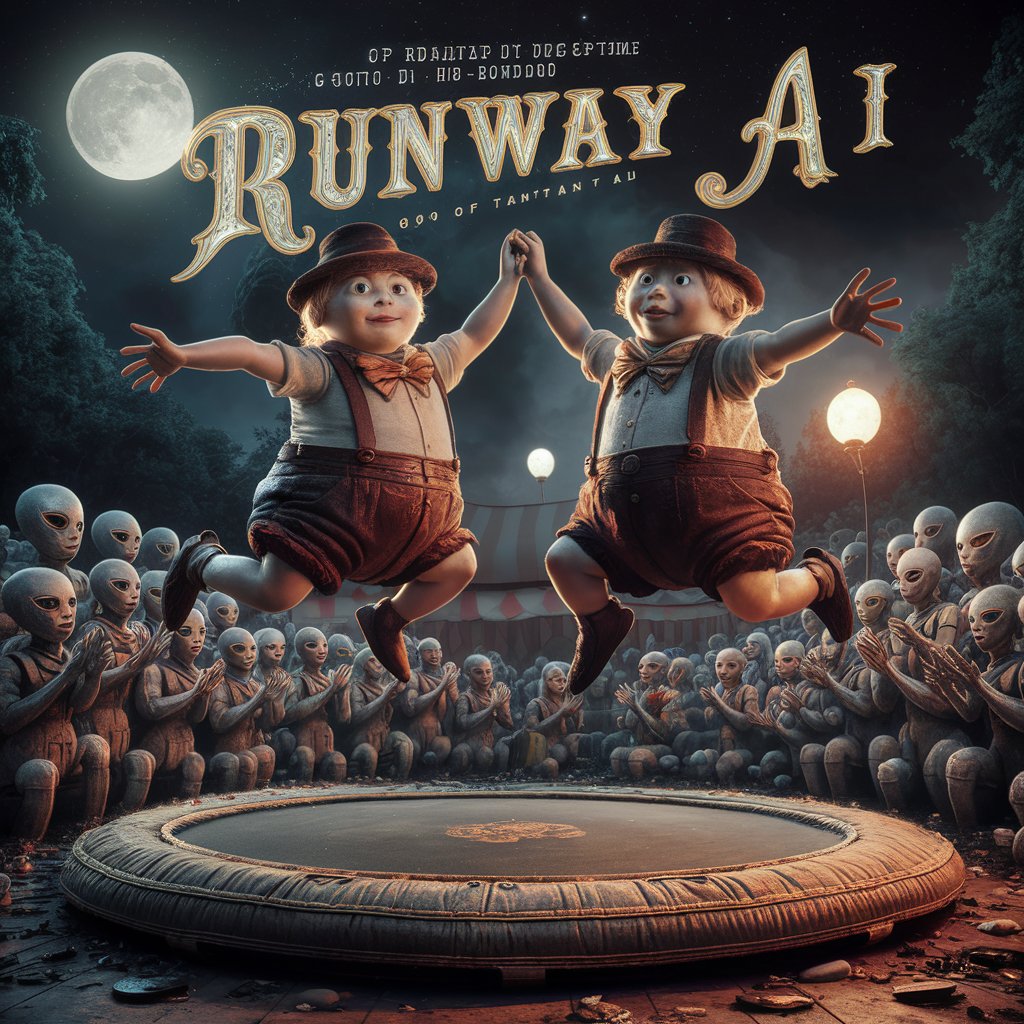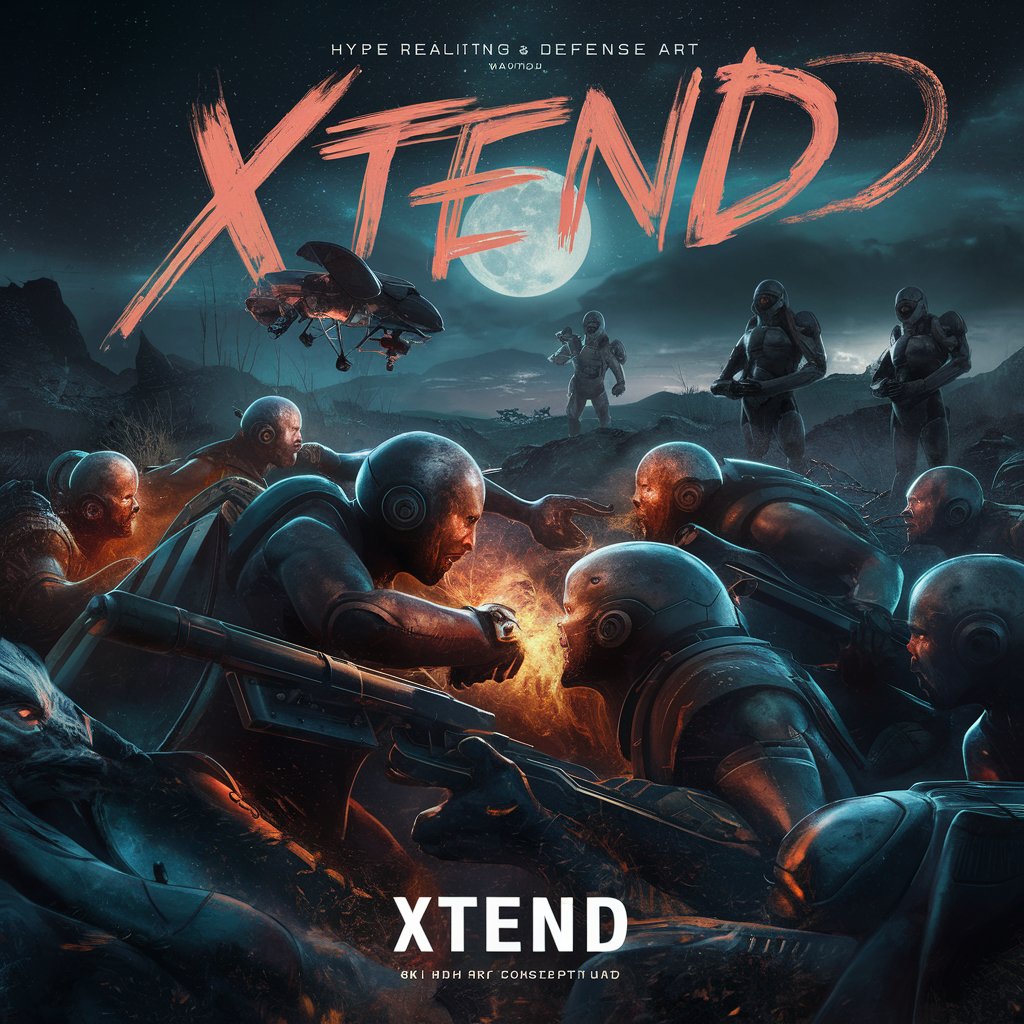
Krea AI: Redefining AI Video Generation with Innovative Real-Time Technology
Introduction:
- Krea AI, a San Francisco-based generative AI media startup co-founded by Victor Pérez and Diego Rodriguez, has quickly become a notable player in the AI video generation space. Initially launching in late 2023, Krea has gained attention for its innovative approaches to AI-powered media creation.
Krea AI’s Unique Offerings:
- The company started with AI image upscaling features, which enhance the details and resolution of user-submitted images. Shortly thereafter, Krea introduced real-time AI image generation capabilities alongside a novel user interface. This interface includes cursor-based brushes and simple shapes that allow users to directly influence the generation process, along with traditional text prompts.
Video Generation Capabilities:
- In a significant expansion of its services, Krea recently introduced video generation for its highest-paying subscribers. This new feature supports both keyframe and text prompt inputs, providing flexibility in content creation. The video generation process includes a preliminary low-resolution preview followed by a high-resolution enhancement, ensuring high-quality outputs.
Subscription Model and Accessibility:
- Krea AI offers multiple subscription tiers: Basic at $10 per month, Pro at $35 per month, and Max at $60 per month. The Max tier, which provides access to the video generation feature, represents the company’s premium offering, targeting professional users seeking advanced capabilities.
Innovative Interface and User Experience:
- Krea’s interface resembles traditional video editing software, making it accessible to users familiar with platforms like Apple’s iMovie and Adobe’s Premiere Pro. This design choice facilitates ease of use and adoption among professional videographers and editors.
Market Position and Competitive Edge:
- Unlike competitors such as Pika and Runway, which focus on motion enhancement of still images or text-to-video transformations, Krea allows a more hands-on approach with the integration of key frames and text in a single project. This capability sets Krea apart in a market crowded with innovative video generation technologies.
User Reception and Industry Impact:
- Despite not achieving the photorealism of some competitors, Krea’s videos are praised for their smoothness, unique transitions, and visually striking animations. The platform’s rapid user growth and adoption by professionals in the film and gaming industries underscore its appeal and potential impact.
Recognition and Future Prospects:
- Krea AI was recently recognized as one of the “Most Innovative Companies in 2024” by Fast Company, highlighting its pioneering work in AI-powered media creation. The startup is actively seeking to commercialize its latest AI breakthroughs, aiming to solidify its position in the competitive landscape of AI media generation.
Conclusion:
- Krea AI’s quick ascent in the generative AI field reflects its unique value proposition and innovative technological approach. With nearly a million users and growing industry recognition, Krea stands out as a promising contender poised to reshape the future of AI-driven video production.
Other AI News
-
Altera Raises $9M to Create Believable AI-Powered Digital Humans
Altera, a Palo Alto-based startup, has raised $9 million in funding to advance its AI technology for creating believable digital humans. Founded in December 2023, Altera has now raised a total of $11.1 million, with Patron and First Spark Ventures leading the latest round. Notable investors include A16z Speedrun, gaming luminary Mitch Lasky, and Valorant co-creator Stephen Lim. The startup, co-founded by former MIT neuroscience professor Robert Yang, aims to bridge the gap between AI and human interaction by developing digital humans capable of empathy, companionship, and complex task execution.
Altera’s groundbreaking AI agents have already shown promise, with an AI capable of playing Minecraft as a human-like companion unveiled earlier this year. This technology showcases Altera’s potential to revolutionize various industries beyond gaming, including healthcare and customer service. The company’s focus on creating digital humans with fundamental human qualities such as empathy and social understanding marks a significant step forward in human-computer interaction. With the new funding, Altera plans to expand its team and further develop its AI models to create immersive, interactive digital experiences.
-
Meta Integrates AI Image and Text Generation into Advantage+ for Streamlined Ad Creation
Meta is set to introduce advanced AI-driven image and text generation features to its Advantage+ platform, enabling advertisers to quickly create dynamic and engaging ads. Scheduled for global release later this year, these capabilities are designed to automate and streamline the ad creation process, allowing businesses to produce various ad creative variations inspired by their original designs. Advertisers can generate images through prompts, similar to tools like Midjourney and OpenAI’s DALL-E, and overlay text using popular font typefaces. Additionally, Meta’s AI will help craft headlines and body copy, aligning with the advertiser’s brand voice and tone.
John Hegeman, Meta’s head of monetization, emphasized that these tools are intended to enhance productivity by saving time and resources while improving ad performance. The new features will be powered by Llama 3, Meta’s next-generation large language model, promising higher quality results and better performance. While these advancements aim to maximize ad efficiency, they are designed to complement, not replace, the creative input of designers and marketers. Meta is also addressing concerns around licensing and copyrights for AI-generated content, with plans to provide further details in the future.
-
Upend Launches AI Search Engine with 100 LLMs to Challenge Giants
Canadian startup Upend has launched from stealth to challenge Google and Microsoft with its AI-driven search engine, aimed at students and professionals. Founded by Jeevan Arora from the University of Toronto, Upend leverages a vast array of 100 large language models (LLMs) to provide users with precise, citation-backed answers to their queries. Unlike competitors like Perplexity, which offers around five mainstream LLMs, Upend boasts a diverse selection, including models from OpenAI, Claude, Mistral, and task-specific ones like Meta’s Code Llama. The platform is designed to democratize access to advanced AI models by offering affordable pricing plans based on team usage rather than the number of users.
Upend’s search engine allows users to select from a variety of LLMs and retrieve information grounded in web searches or specific sources like Wikipedia. It supports multiple office file formats for analysis and aims to expand its capabilities further. Currently, Upend offers a team plan at $20/month and a student plan at $5/month, significantly undercutting competitors like Perplexity and ChatGPT. Looking ahead, CEO Jeevan Arora envisions Upend evolving into a comprehensive task engine that not only provides answers but also executes tasks for users, alongside planned enhancements like single-sign-on (SSO) and a potential mobile app. As generative AI continues to disrupt traditional search, Upend positions itself at the forefront of this transformative shift.
-
Espresso AI Raises $11M to Optimize Cloud Costs with AI
Espresso AI, a Silicon Valley startup, has emerged from stealth with $11 million in funding to address the escalating issue of cloud costs in enterprise computing. Led by notable investors including Daniel Gross, Nat Friedman, and Matt Turck, Espresso AI aims to optimize code and reduce cloud compute costs by up to 80%. The company’s initial product focuses on optimizing SQL queries for Snowflake, a popular cloud data warehousing platform, using advanced language models and machine learning to automatically streamline queries for better performance and cost efficiency.
The move to the cloud has brought significant challenges in cost control for enterprises, with data warehousing being a major expense. Espresso AI’s technology integrates with a company’s existing Snowflake setup, analyzing and refactoring queries in real-time to enhance performance and minimize compute usage. With a simple setup process, the platform has already gained traction among enterprise customers. The funding will be used to further develop the product and expand its reach, with plans to support additional platforms like Databricks. Espresso AI’s potential to deliver substantial cost savings and performance improvements positions it as a disruptive force in the cloud computing landscape.
-
Neurable Raises $13M to Democratize Brain-Computer Interface Technology
Neurable, a Boston-based startup, has raised $13 million to further develop its brain-computer interface (BCI) technology, which integrates with everyday products. The funding, led by Ultratech Capital Partners, TRAC, Pace Ventures, and Metaplanet, will support the advancement of Neurable’s platform technology and expand its licensing business across multiple industries. With over $30 million raised since its inception, Neurable aims to democratize neurotechnology by making its non-invasive BCI technology widely available to consumer audiences through products such as the upcoming Neurable AI-powered MW75 Neuro headphones. The company plans to expand its product portfolio to include earbuds, helmets, and other head-worn devices optimized for human performance.
Neurable’s unique electroencephalography (EEG) AI technology records brain activity in a compact, non-invasive manner, providing users with insights into their brain data. The company, founded as a University of Michigan spinout, has partnered with consumer wearable companies like Master & Dynamic to embed EEG sensors into everyday technologies. The launch of the first-ever BCI-enabled headphones, MW75 Neuro, is set for this summer. Additionally, Neurable has collaborated with the Air Force Research Lab and secured $5 million in Department of Defense contracts to develop its technology for improving soldier health and performance. This new funding round will continue to propel Neurable’s mission to optimize human performance and address pressing health challenges.
-
Hugging Face Debuts LeRobot: Open-Source Toolkit for AI Robotics
Hugging Face, known for its extensive repository of open-source AI models, has unveiled LeRobot, an open-source toolkit designed to democratize AI robotics. Led by Remi Cadene, a former Tesla scientist, this initiative aims to inspire a new generation of roboticists. LeRobot provides a comprehensive platform with a versatile library for sharing, visualizing data, and training state-of-the-art models. It integrates seamlessly with physics simulators, enabling developers to simulate and test their AI models in virtual environments without needing physical hardware. The toolkit supports a range of robotic hardware, from educational robotic arms to advanced humanoids, promoting versatility and scalability in robotics applications.
LeRobot’s open-source philosophy aims to prevent the concentration of power within a few corporations by inviting a global community of developers, researchers, and hobbyists to contribute. Hugging Face is also assembling the largest crowdsourced robotics dataset, collaborating with universities, startups, and tech firms. This dataset includes terabytes of onboard video recordings formatted using the lightweight LeRobotDataset for easy access via the Hugging Face hub. By lowering barriers to entry and fostering shared knowledge, Hugging Face aims to cultivate a diverse community that could redefine the landscape of AI robotics.
-
Mistral AI Raises $600M at $6B Valuation, Excludes SoftBank
Mistral AI, a Paris-based startup specializing in open-source large language models, is raising funds at a $6 billion valuation, three times its valuation from December. Led by DST, General Catalyst, and Lightspeed Venture Partners, the funding round is expected to be close to $600 million. Despite earlier speculations, SoftBank is not participating in this round. Founded by Arthur Mensch, Mistral has attracted significant interest due to its rapid progress and potential to compete with industry giants like OpenAI and Anthropic.
The startup has already raised $415 million at a $2 billion valuation last year and is notable for its European roots, contributing to Paris’s growing reputation as an AI research hub. Mistral’s commitment to open-source development distinguishes it from its competitors, and the new funding aims to further enhance its capabilities in the fast-evolving AI landscape. The company’s growth reflects the high demand and intense interest in AI advancements, despite the broader challenges faced by tech startups.
-
Checkfirst Secures $1.5M for AI-Powered Remote Inspections and Audits
Checkfirst, a startup focused on AI-powered remote inspections and audits, has raised $1.5 million in pre-seed funding. The funding round was led by Lisbon-based Olisipo Way and Hiero VC, with participation from Notion Capital and several angel investors. Founded by Ben Lambert, Checkfirst addresses the inefficiencies in the Testing, Inspection, Certification, and Compliance (TICC) industry by using AI to streamline scheduling and automate data collection. The platform optimizes inspections by assigning tasks based on geographical location and qualifications, reducing travel and operational costs.
Checkfirst’s technology integrates AI for image recognition and scheduling, allowing companies to perform inspections more efficiently. The startup aims to transform the TICC industry, which traditionally relies on manual processes, by providing an API-first solution that automates report generation and compliance tasks. With its recent funding, Checkfirst plans to enhance its platform, expand its client base, and support proof-of-concept projects with various enterprise clients. The company’s founders include Lambert, CPO Oyvind Henriksen, and CTO Rami Elsawy, all of whom bring significant experience from previous tech ventures.
-
Xtend Secures $40M to Expand Defense-Focused Drone Technology
Xtend, a controversial drone company, has secured a $40 million funding round led by Chartered Group, bringing its post-money valuation to $110 million. Founded by Aviv and Matteo Shapira, Xtend provides a platform for operators to control drones and robots, which can autonomously handle tasks like entering buildings and scanning floors. With contracts from the Israel Defense Forces (IDF) and the U.S. Department of Defense, Xtend is focused on military and defense applications, though it plans to expand into public and private security sectors.
Despite the potential benefits of Xtend’s technology, there are concerns about its use in law enforcement and military operations, particularly in surveillance and combat scenarios. The company has faced scrutiny for receiving EU funds despite prohibitions on military funding and for its role in Israel’s military actions. With the new funding, Xtend plans to grow its workforce and shift towards a platform-as-a-service and software-as-a-service model, aiming to extend its reach internationally, particularly in Japan.
-
Panax Secures $10M to Advance AI-Driven Cash Flow Management
Israeli startup Panax has secured $10 million in Series A funding, led by Team8 with participation from TLV Partners. The company focuses on AI-driven cash flow management for midsize and large companies in industries like manufacturing and logistics. Panax’s platform provides more than just visual dashboards; it offers insights and actionable recommendations to optimize treasury management. The funding will help Panax scale its operations, enhance its AI and data capabilities, and expand its product offerings, including features like foreign exchange optimization.
Founded by Noam Mills and co-founders Niv Yaar and Sefi Itzkovich, Panax has already made significant strides in automating cash management tasks. With its AI technology, Panax aims to streamline financial processes, making them more efficient and cost-effective. The company’s early success with clients such as Oddity underscores its potential to revolutionize how businesses handle cash flow and treasury operations. The new funding will also support Panax’s expansion into the U.S. market, with plans to grow its New York City office while keeping its R&D in Israel.
-
Samsung Medison Acquires AI Startup Sonio to Enhance Ultrasound Technology
Samsung Medison, a subsidiary of Samsung Electronics, announced the acquisition of French AI ultrasound startup Sonio for $92.7 million. Sonio specializes in AI-powered software for ultrasound workflows, aiding obstetricians and gynecologists in evaluating and documenting exams. The acquisition is expected to enhance Samsung Medison’s AI-driven imaging solutions, combining Sonio’s advanced technology with Samsung’s established global ultrasound business.
Co-founded in 2020 by Cecile Brosset and Rémi Besson, Sonio has raised $27.2 million to date and will continue to operate independently post-acquisition. This move aligns with Samsung Medison’s mission to improve healthcare quality through technology and expand its reach in the medical diagnostics market. The acquisition also underscores the growing integration of AI in medical imaging and diagnostics, promising improved accuracy and efficiency in prenatal care.
-
Wayve Raises $1 Billion to Enhance Autonomous Driving and Robotics
Wayve, a UK-based startup, has raised $1 billion in a Series C funding round led by SoftBank Group, marking the largest AI fundraise in the UK to date. Additional investors include Nvidia and Microsoft. The funding will be used to advance Wayve’s self-learning, hardware-agnostic autonomous driving system, which aims to integrate AI technology into various car models and robotic applications. This “Embodied AI” approach allows Wayve’s platform to learn from real-world driving data, enhancing its capabilities for both assisted and fully automated driving.
Wayve plans to leverage this significant capital injection to scale its operations globally and continue developing its AI models, known as LINGO and GAIA, which offer personalized driving styles and co-piloting features. The company is set to transform the automotive industry by partnering with multiple auto manufacturers, thus accumulating extensive training data to refine its self-driving technology. This expansion reflects a broader trend in AI and autonomous driving, highlighting the UK’s role as a leader in technological innovation.
-
DocuSign Acquires Lexion to Enhance AI-Driven Contract Management
DocuSign has acquired Lexion, an AI-powered contract workflow automation startup, for $165 million. This acquisition aims to enhance DocuSign’s contract management capabilities by integrating Lexion’s AI models, which streamline contract creation and negotiation processes. Founded at the Allen Institute for AI, Lexion has developed technology that allows legal teams to efficiently manage contracts using natural language queries. The acquisition comes as DocuSign explores a potential sale to private equity, indicating a strategic move to bolster its offerings and market position.
Lexion, which had raised $35.2 million in venture capital, will continue to develop integrations with DocuSign’s products. This acquisition is expected to provide DocuSign customers with a more detailed understanding of contract structures and insights, improving overall efficiency and risk management. The move also aligns with DocuSign’s broader strategy to innovate and expand its capabilities in the contract management space, making it more attractive to potential buyers amid ongoing sale discussions.
-
Stack Overflow and OpenAI Collaborate to Improve AI-Powered Developer Tools
Stack Overflow has signed a deal with OpenAI to supply data for training its AI models, including those used by the ChatGPT platform. This collaboration aims to improve the performance of AI on programming-related tasks by leveraging Stack Overflow’s vast repository of developer Q&A content. In return, Stack Overflow will benefit from OpenAI’s expertise to develop new AI integrations on its platform. This partnership represents a significant shift for Stack Overflow, which initially banned ChatGPT responses due to concerns over spammy answers.
This move comes as Stack Overflow navigates declining traffic and increased competition from AI tools. The partnership follows a similar agreement with Google to integrate AI features into the Stack Overflow platform. By collaborating with major AI companies, Stack Overflow aims to enhance its offerings, attract more users, and maintain the quality of its developer community. CEO Prashanth Chandrasekar emphasized the importance of vetted, accurate data in fostering a collaborative and efficient developer experience through AI advancements.
-
Retell AI Launches Platform for Building AI-Powered Voice Agents
Retell AI, a startup focused on enhancing call center efficiency, has developed a platform that allows companies to create AI-powered voice agents for answering customer phone calls and performing basic tasks like scheduling appointments. Co-founded by Evie Wang, Retell AI uses large language models fine-tuned for customer service, combined with a speech model to generate natural conversations. The platform supports low-code tooling and custom model uploads, enabling businesses to deploy tailored voice agents that reduce costs and improve customer service experiences.
Retell AI’s solution is already being used by companies such as telehealth provider Ro, helping them handle high call volumes more effectively. The AI agents are designed to maintain low latency and handle conversational edge cases, ensuring smooth interactions with customers. With hundreds of paying customers and significant venture backing, Retell AI is positioned to make a substantial impact on the future of call center operations by automating routine tasks and enhancing overall efficiency.
-
Daloopa Secures $18M to Enhance AI-Driven Financial Data Automation
Daloopa, a startup that uses AI to automate financial analysts’ workflows, has raised $18 million in a Series B funding round led by Touring Capital, with participation from Morgan Stanley and Nexus Venture Partners. Founded by Thomas Li, Jeremy Huang, and Daniel Chen, Daloopa’s platform leverages AI to extract and organize data from financial reports and presentations, significantly reducing manual data entry and enhancing efficiency for hedge funds, private equity firms, and investment banks. This technology allows analysts to focus more on research and analysis rather than data collection.
The fresh capital will help Daloopa expand its team, enhance product development, and scale its operations. The company’s AI algorithms continuously improve by training on a growing dataset of financial documents, ensuring high accuracy and efficiency. With a customer base that includes prominent financial institutions, Daloopa is well-positioned to lead in the AI-driven financial data space. The company aims to revolutionize how financial analysts access and utilize critical data, providing a competitive edge in investment research and decision-making.
About The Author

Bogdan Iancu
Bogdan Iancu is a seasoned entrepreneur and strategic leader with over 25 years of experience in diverse industrial and commercial fields. His passion for AI, Machine Learning, and Generative AI is underpinned by a deep understanding of advanced calculus, enabling him to leverage these technologies to drive innovation and growth. As a Non-Executive Director, Bogdan brings a wealth of experience and a unique perspective to the boardroom, contributing to robust strategic decisions. With a proven track record of assisting clients worldwide, Bogdan is committed to harnessing the power of AI to transform businesses and create sustainable growth in the digital age.











Leave A Comment